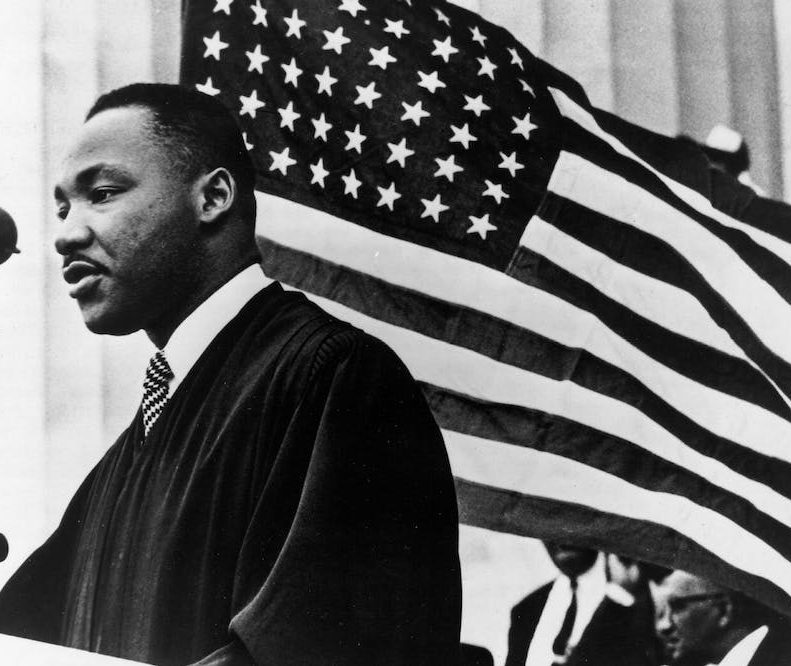On January 15th, annually, we celebrate and honor Martin Luther King Jr. and his memory, which has and always remains imprinted in our history. Martin Luther King Jr. Day does not just signify the day that motivates every American to engage in volunteer work and enhance their local areas; it also represents the fulfilling life and stalwart work of the man who brought hope and revivification to America. His utmost dedication and conatus are salient pillars that scaffold the veracious meaning of equality. As a prominent individual and one of the leading members of the American Civil Rights Movement, King impacted American history in an ironlike way that marked the beginning of an everlasting change in our dynamic society. Because of the enduring influence of his words, deeds, and legacy, Martin Luther King Jr. continues to stand on the essence of hope. His reverberating words and unwavering fidelity to equality have left an emblem on people all over the globe, igniting an insatiable desire for a rectitudinous and compeer society. Through the crashing waves of hardship and rigor, King’s commitment to ending inequality is a monument of progression and epochal that shall never fall in the eyes of the world. His unshakable presence in American history echoes as an insurmountable gulf of justice, parity, and, perhaps most importantly, unconditional hope.

Throughout Martin Luther King Junior’s awe-inspiring life, he tirelessly championed civil rights, equality, and justice, leaving an indelible mark on the pages of history. He led a remarkable life, one that was filled with the pursuit of ending segregation and countering prejudice in the United States. King aspired to advocate for equality and spearheaded the Civil Rights Movement in America through nonviolent protests. Born on January 15th, 1929, in Atlanta, Georgia, he grew up in a deeply segregated society in which racial discrimination was ubiquitous. Despite facing numerous challenges, King persevered in the most scintillating way possible and emerged as an influential figure in the American Civil Rights Movement. His determination to engage in nonviolent protests and civil disobedience, along with other actions, played a pivotal role in the skyrocketing growth of the movement that paved the way for the betterment of the America we proudly call home. He drew inspiration from Mahatma Gandhi and utilized it in the fight against injustice in the United States. King believed in the power of love, compassion, and understanding to bring about social change.

One of the most significant and riveting events of King’s life was the Montgomery Bus Boycott, which took place from 1955 to 1956. The boycott was sparked by Rosa Parks, an American activist and the mother of the Civil Rights Movement. Parks’s refusal to give up her seat on a bus marked a new beginning for a new phase in the Civil Rights Movement. King’s leadership and paramount preservation of what he veritably believed in brought him national attention during this time. Rosa Parks’s invigoration of the struggle for racial equality paved the way for others to rally behind this distinct and profound cause. In 1957, King and other prominent civil rights leaders established the Southern Christian Leadership Conference (SCLC). The SCLC became a conspicuous and key organization in the fight for civil rights, organizing peaceful protests, marches, and demonstrations across the country for all to see and witness. Moreover, King is perhaps best known for his compelling and iconic “I Have a Dream” speech. This powerful address called for an end to racism and envisioned a future where individuals can be judged by their character rather than the color of their skin. His prodigious and monumental words moved audiences with the notion that the near future, whatever it may bring, can change for the better.

Martin Luther King Jr. was the beacon of hope during a time of hardship and strife. Because of him and his determination, King instilled the dream he had, uplifting everyone around him to end the oppressive burdens of segregation. He was able to bridge a connection between diverse communities of people from different backgrounds through his powerful advocacy for civil rights and his ardent commitment to ending segregation. He influences our daily lives as an example to stand up for our rights. We learn of him and his contributions to the civil rights movement and American democracy, which make him a very ponderable figure in our patriotic history. He spoke the truth and what he believed, which we, as the future generation, look up to. His message will always continue to inspire young individuals. King encouraged others to have a dream and to pursue it, no matter what. We will always remember Martin Luther King Jr. for his tenacity and fortitude, on this day and in the years to come.






